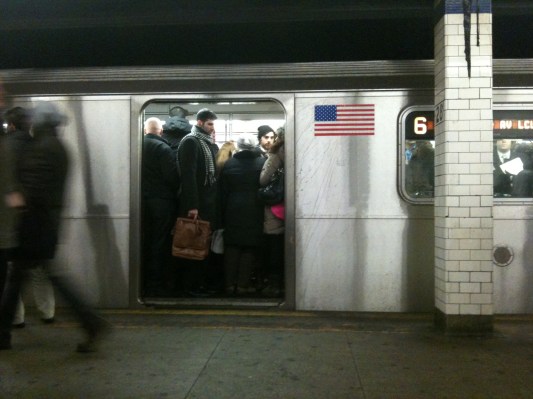Editor’s Note: David Hirsch is a co-founder and managing partner of Metamorphic Ventures. The firm is an investor in Boxbee.
The generational shift occurring as millennials come of age and baby boomers just keep aging has massive implications for both technology and society.
As mobile devices become magic wands for marketplaces, matching supply and demand and making goods and services more accessible than ever before, we’re experiencing an “uberfication” of the economy.
Alongside this movement to an “on-demand” economy (discussed in detail by the team at Sherpa Ventures), is the equally as transformative re-urbanization of America.
In 2013, 2.3 million more people moved into metro areas than in 2012, driven by the demands of America’s two most powerful demographics. Baby boomers are retiring and moving back to the cities they left when they started families and millennials want to live closer to each other and where the action is.
Increasingly, commerce and services will be conducted on an “on-demand” basis. We saw this happening with Instacart raising a round at a valuation of over $1 billion. Another interesting company in the space is Shyp, which allows the end user to quickly find somebody to ship their package anywhere in the world.
Traditional industries will need to figure out logistics to reach customers with the same speed and service that they’ve come to expect. Uber and Amazon have raised the bar and the whole delivery ecosystem is undergoing dramatic changes. Customers are going to expect an omni-channel, same-day delivery experience for all products and services.
The problem that arises is in warehousing. Smaller companies that sell on Shopify, individuals who sell on Etsy and larger big box retailers will need a logistics solution for warehousing and delivery if they want to compete with Amazon’s leasing of 470,000 square feet in New York City.
Another result of the growth in urban living is the lack of space. While it’s true that millennials are owning less and valuing experiences more, just ask a few of the 20-somethings in your office about how much space they have in their apartments. Traditional storage isn’t practical for this demographic as it’s expensive and difficult to access on a weekly or even daily basis.
Companies like Boxbee (a Metamorphic portfolio company), Makespace, Urbin, Clutter, and Cubiq are all working to tackle the problem of storage with a on-demand solution.
These companies can also act as a warehousing solution for independent sellers and small businesses. Boxbee already works with Instacart to store their grocery bags and deliver them on-demand in a “storage-as-a-service” offering.
This solution from Boxbee or others provides a B2B commerce layer where all digital storefronts on Etsy, Shopify and eBay can use space to both warehouse their goods and then deliver them in urban areas.
Another consequence of this shift is the rise of the sharing economy, or “collaborative consumption” as many call it. With Airbnb flourishing, the whole market is on the verge of being opened up from sharing what’s in your closet (Threadflip, Rent the Runway) to your car (Flightcar, Lyft).
It’s only logical that with a lack of space and millennials rejecting physical goods for memorable experiences, that sharing and renting from your peers will continue to open up in other verticals.
